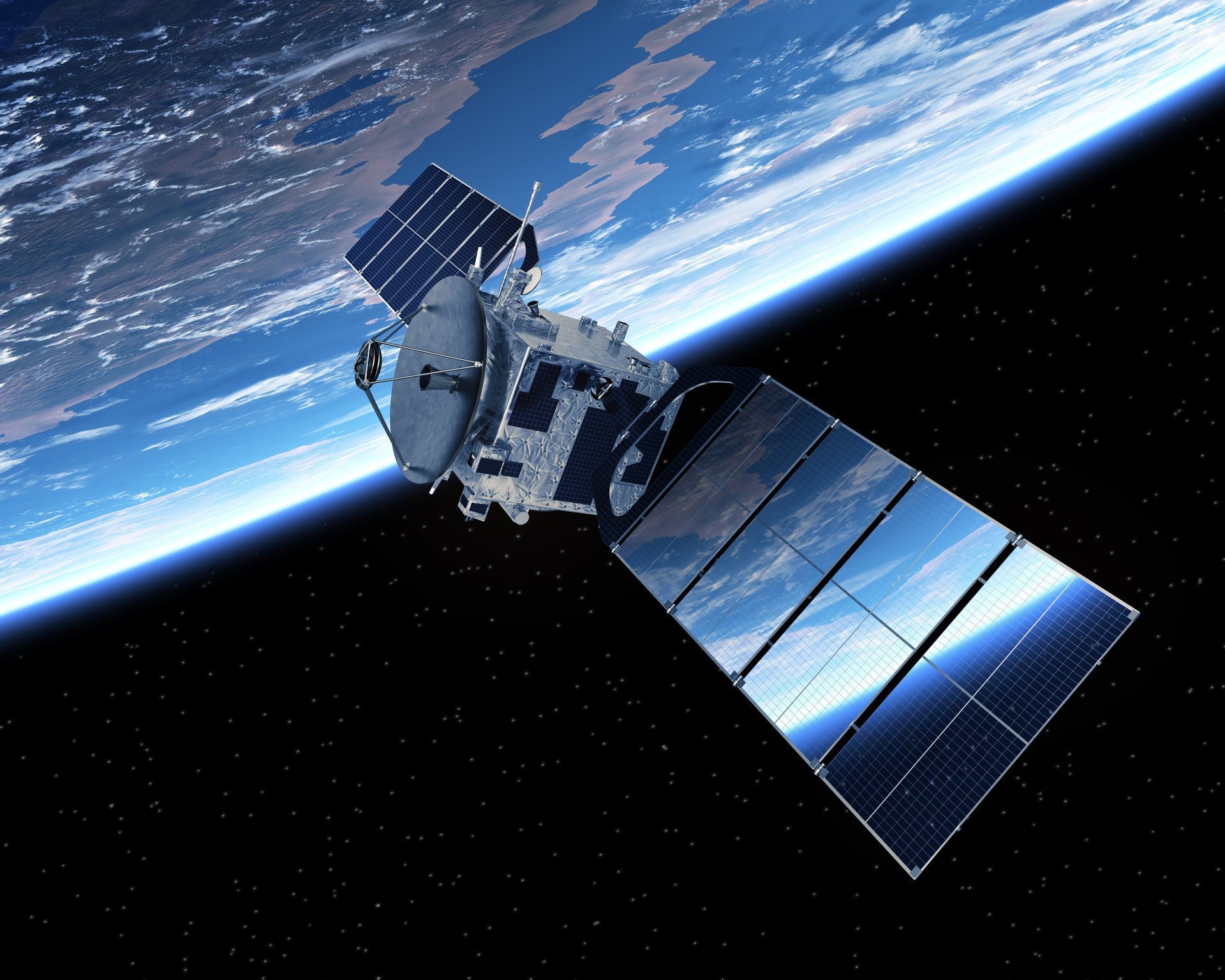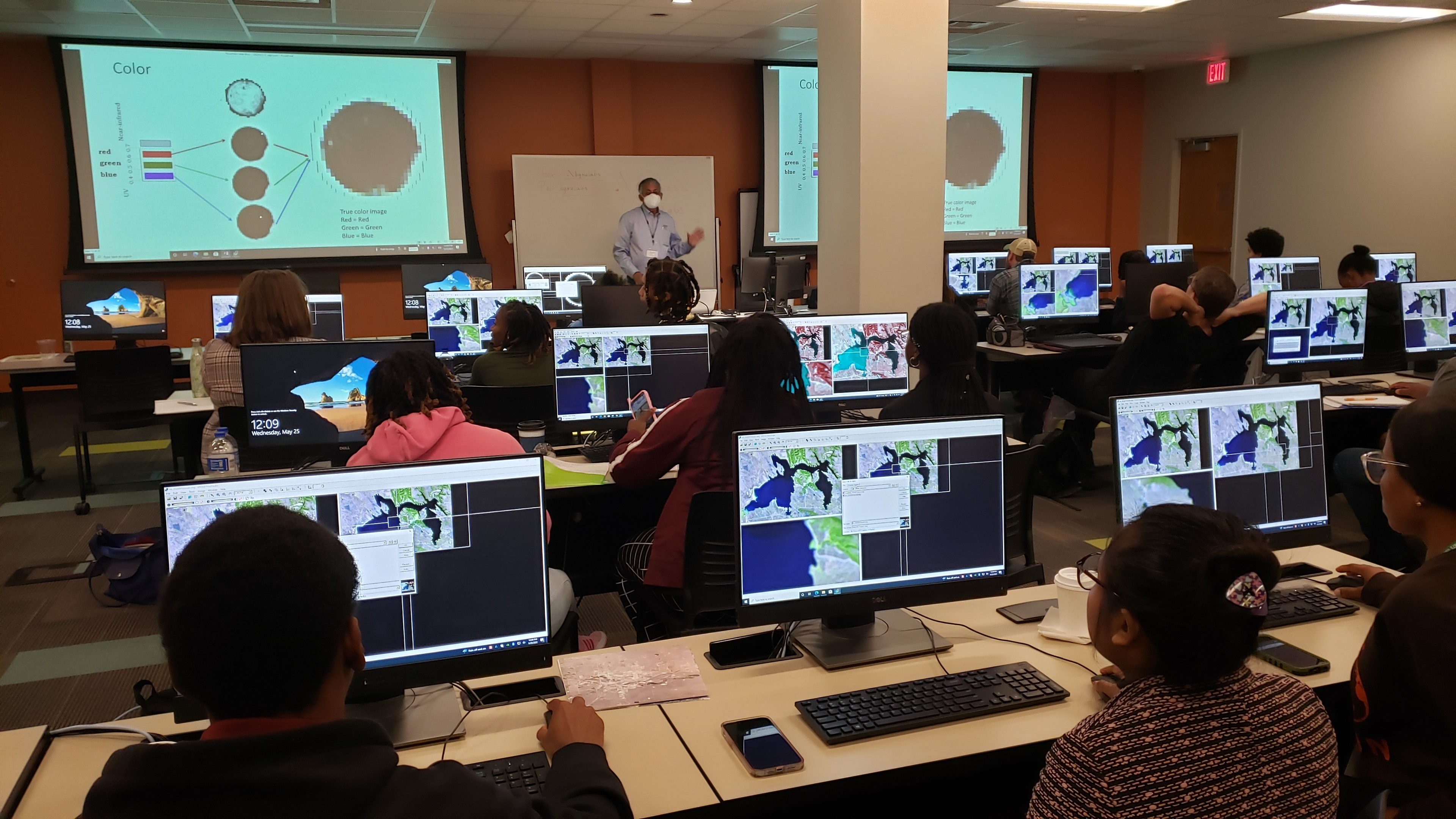
Data overload: BGSU professor leads nationwide program to increase interest, diversity in geoscience
$315,000 grant provides hands-on training in satellite and remote sensing technology

By Laren Kowalczyk '07
Every day, thousands of satellites orbit Earth collecting hundreds of terabytes of information on atmospheric conditions, landscapes, marine environments, forests and more. The data plays a crucial role in predicting extreme weather events, monitoring things like soil erosion, water quality, land use and countless other critical environmental observations.
According to Dr. Anita Simic Milas, associate professor in the School of Earth, Environment and Society at Bowling Green State University, the problem is the amount of data collected far outpaces the number of qualified geoscientists available to analyze and process it. Milas is working to increase interest and diversity in the field through a three-year educational research program called SPLIT Geoscience.
Funded by a nearly $315,000 grant from the National Science Foundation, the program includes a combination of workshops, hands-on training and field experience. There’s also an emphasis on connecting undergraduate and graduate students across the country to future employers in the scientific community through partnerships with academia, industry and multicultural organizations.
“There is a significant gap in how many geoscientists there are who can analyze the data versus the tremendous amount of data received every day,” Milas said. “Through this program, we’re trying to foster an interest in geospatial analysis in hopes students, especially those from underrepresented communities, will pursue an advanced degree in the field and continue on to a professional career.”
Multi-university collaboration
SPLIT Geoscience is a collaboration between BGSU, Central State University, the University of Louisana at Lafayette, Idaho State University and AmericanView, a consortium of more than 40 universities. An intensive five-day workshop will be held annually by the partner institutions throughout the duration of the grant.
BGSU hosted the first workshop in May, drawing undergraduate students from across the country to the University. About a third of the roughly 30 participants were BGSU students.
Topics related to the socioeconomic needs of the local community are incorporated into the workshops. For BGSU, topics included water management and water quality - a significant focus of the region since the 2014 algal bloom in the Western Lake Erie Basin temporarily rendered Toledo’s water undrinkable.
Disaster response and recovery will be a focus of the University of Lousiana at Lafayette workshop and Idaho State University will incorporate geological monitoring into its programming.
Hands-on learning
On the first day of the BGSU workshop, participants visited the Old Woman Creek National Estuarine Research Reserve in Huron, Ohio, to learn about the estuary and how to fly a drone to collect data on water quality, weather, biological communities, habitat, land use and land cover characteristics.
Students were trained on remote sensing technologies, geographic information systems, comprehensive modeling approaches and data analysis by experts from the United States Geological Survey, NASA and numerous members of the AmericanView consortium of universities.
“We tried to cover many different areas from how to use the software to what to look for on a satellite image, how to handle the large amount of data collected, how to process the images and their value,” Milas said. “This workshop is designed to be very practical and hands-on.”
A future in geoscience
There were also lectures on communication skills to teach students how to write abstracts and manuscripts, present research and contribute to conferences with an additional focus on applying to graduate school or beginning a career in geoscience.
In an effort to be inclusive, Milas opened the workshop to anyone interested regardless of their current major or academic standing.
“If a student wants to learn, that student is more than welcome to join us,” she said. “I want to give all students a chance to change their educational direction to become more successful. Oftentimes, as soon as they’re in, they start liking this field and can see a promising future for themselves.”
Related Stories
Media Contact | Michael Bratton | mbratto@bgsu.edu | 419-372-6349
Updated: 06/24/2022 04:34PM




